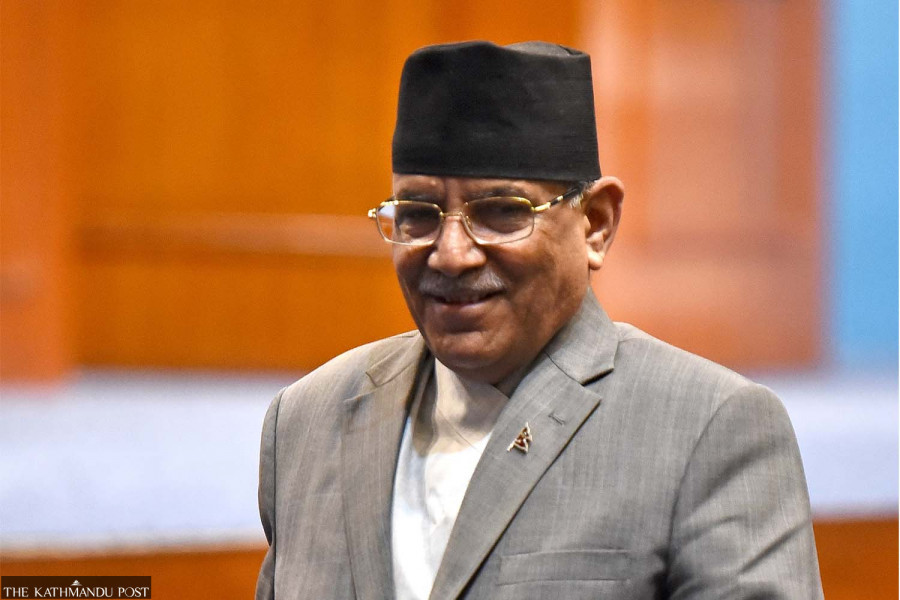Editorial
Dahal’s insecurity
How will bringing together parties with limited public mandate revive Maoist Centre’s electoral fortunes?
These are desperate times for Prime Minister Pushpa Kamal Dahal. First, the CPN (Maoist Centre) chairman wanted to fashion a “socialist front”. In the event, he did succeed in stitching it together, with his Maoist Centre, the Janata Samajbadi Party, the CPN (Unified Socialist) and the Netra Bikram Chand-led Communist Party of Nepal as members. Now, he has announced efforts to unite all Maoist splinter groups. Dahal leads the government as the head of a party with just 32 seats in the 275-member federal lower house. This makes him insecure. After the front’s formation, he now has the support of 52 house members from the bloc, but even this is way shy of a majority. Rumours of his main coalition partner, the Nepali Congress, joining hands with the CPN-UML, the main opposition, to unseat Dahal has made him lose sleep. He wants to bring together various Maoist splinter groups as he also feels his hold on the Maoist Centre slipping away. Dahal has this tendency of setting up rival groups within his party so that he can play the mediator, seemingly the only person who can keep the party intact. A few leaders in the party, he feels, have become too ambitious—and hence the desired entry of the firebrand Chand to balance them.
The problem with all these efforts is that they are purely person-centric. Dahal wants to cement his hold on the prime minister’s chair and retain his over three-decade-long party leadership. The former will be a lot harder than the latter. Even though the socialist front now has a combined 52 seats, it is not a political party and its members will ditch Dahal the moment they get a better power-sharing deal from others. They are fickle as their unity is based not on any ideological similarity but power calculations. One reason the previous merger of the KP Sharma Oli-led CPN-UML and the Dahal-led Maoist Centre unravelled was that neither of the two seemed ready to stay away from the prime minister’s seat for any time. This is why, even though people had given the communist coalition a mandate to rule for the next five years, the merger unravelled in under three years.
Now Dahal not only has to fight off the traditional rival parties but also the Rastriya Swatantra Party, which, according to the Maoists, poached a significant number of their electoral votes. If the status quo continues until the next general elections, they fear, the Maoist Centre could be wiped off the electoral map. But besides hoping that the RSP implodes from within, Dahal and his party can do precious little to counter the new party’s unmatched appeal among the under-40 population. It is hard to see how bringing together a bunch of parties that have very limited public mandate can revive the Maoist Centre’s electoral fortunes. More likely is the entry of some extremist leaders in the party so that the chairman can continue to ‘divide and rule’ for a few more years. Such is now the limited horizon of a once revolutionary leader who was ready to lay down his life to transform his country.




 18.12°C Kathmandu
18.12°C Kathmandu














